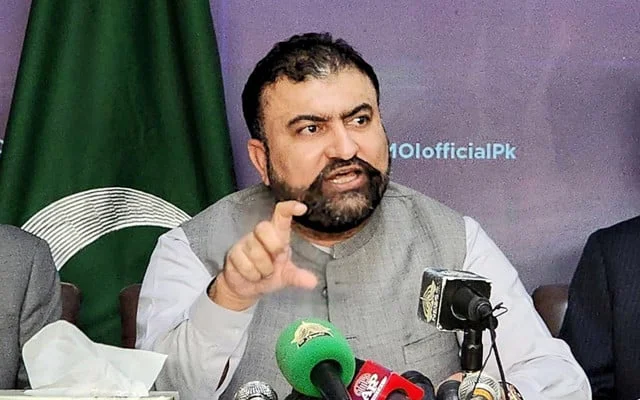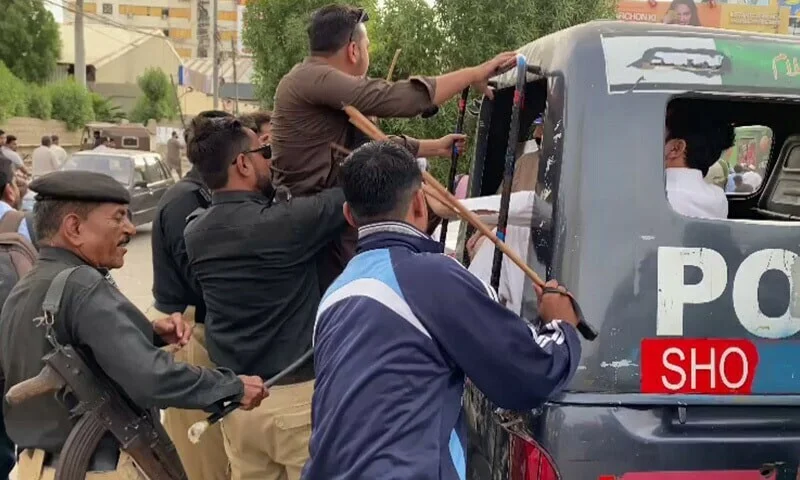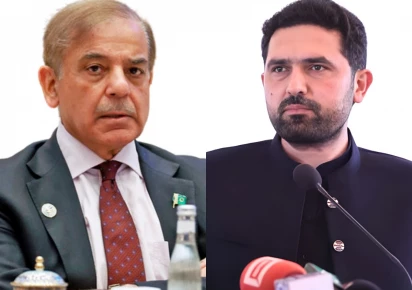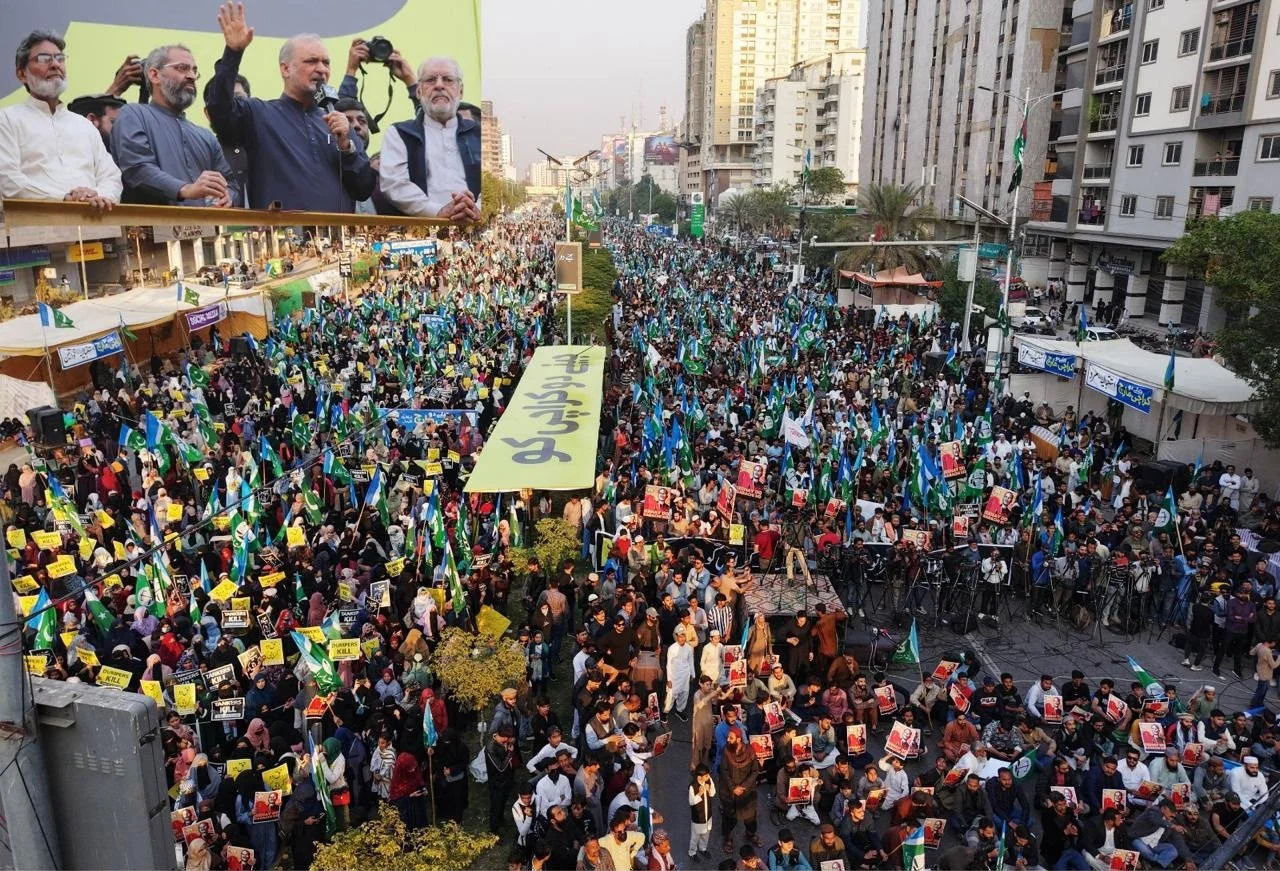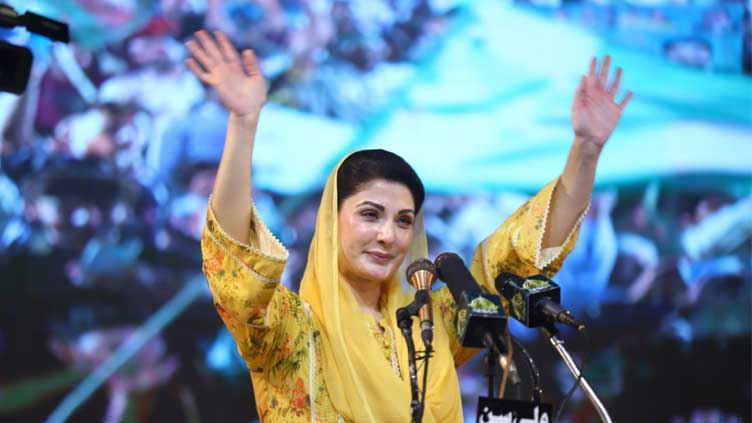Army Chief Of Pakistan
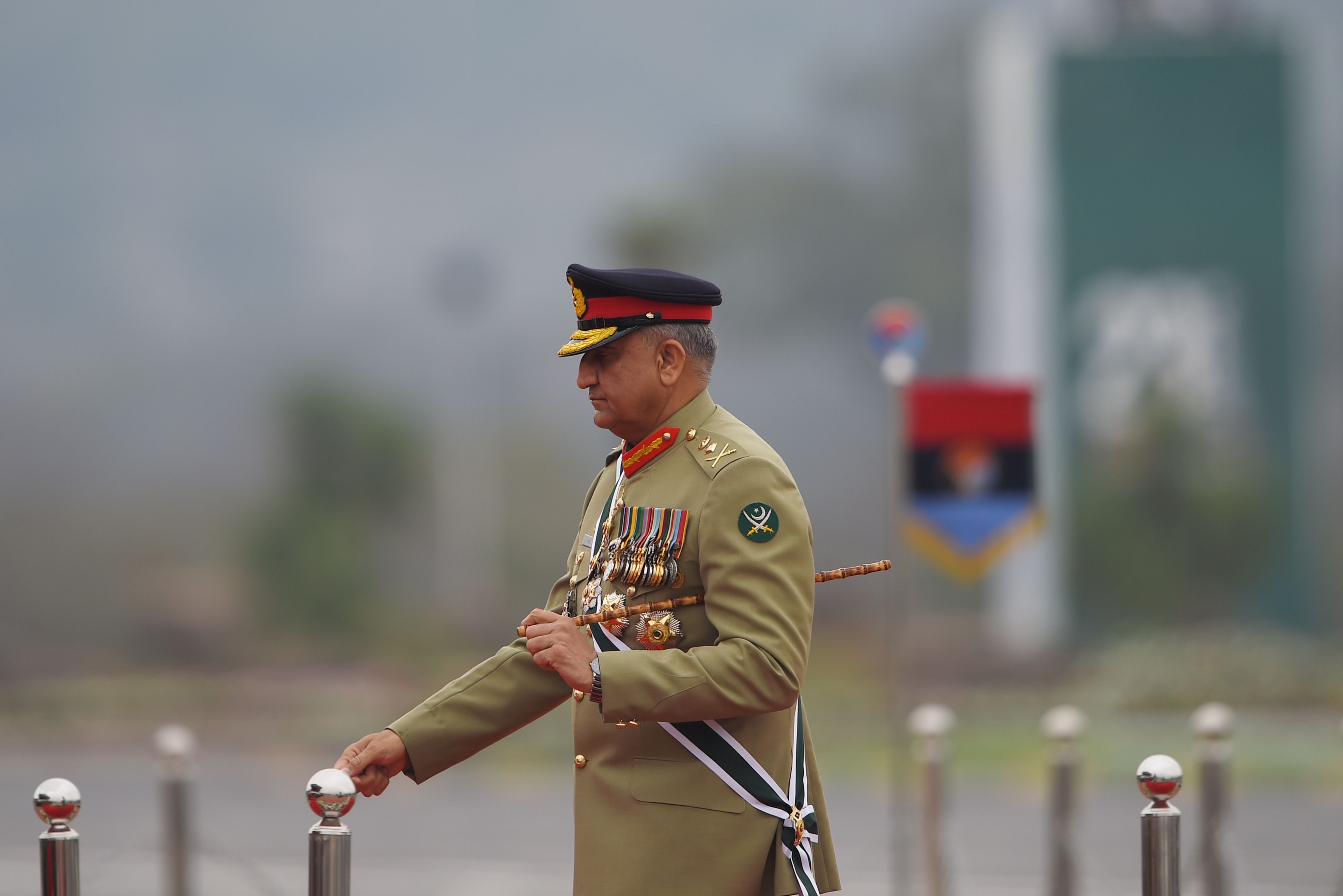
The Army Chief of Pakistan is the highest-ranking military officer in the Pakistani armed forces and plays a crucial role in the country's political and security landscape.
The primary responsibility of the Army Chief is to ensure the operational readiness of the Pakistani military and to safeguard the country's national security interests. This involves overseeing the training, equipping, and deployment of military personnel and coordinating with other branches of the Pakistani government to address security challenges.
In addition to their military duties, Army Chiefs in Pakistan have historically played a significant role in the country's politics. Pakistan has experienced several military coups throughout its history, and the Army Chief has often been a critical figure in these coups or the removal of civilian governments.
Army Chiefs have also been involved in formulating and implementing national policies, particularly those related to national security and foreign affairs. In some cases, they have wielded significant political power and have been able to influence decision-making in areas beyond the military sphere.
However, the role of the Army Chief in Pakistani politics is often controversial. The country has an ongoing debate about the appropriate level of military involvement in civilian affairs. Some critics argue that the military's political participation undermines the country's democratic institutions and processes and hampers the country's progress toward more excellent stability and prosperity.
Overall, the role of the Army Chief in Pakistan is multifaceted and complex, involving both military and political responsibilities. While the Army Chief has a crucial role in safeguarding the country's security interests, there is an ongoing debate about the appropriate level of military involvement in civilian affairs and the need to preserve and strengthen democratic institutions.
List of Army Chief In Pakistan
- Tikka Khan HJ
- Muhammad Zia-ul-Haq
- Mirza Aslam Beg NI(M), SBt
- Asif Nawaz Janjua NI(M), SBt
- Abdul Waheed Kakar NI(M), SBt
- Jehangir Karamat NI(M),
- Pervez Musharraf NI(M),
- Ashfaq Pervez Kayani NI(M), HI(C)
- General Raheel Sharif NI(M), HI(M)
- Qamar Javed Bajwa NI(M), HI(M)
- Asim Munir NI(M), HI(M)
Tikka Khan HJ
Tikka Khan (also known as General Tikka Khan) was a Pakistani military officer who served as the Chief of Army Staff (COAS) from March 1972 to March 1976. He was born on July 7 1915 in Jalandhar, British India, and died on March 28 2002 in Islamabad, Pakistan.
Tikka Khan played a significant role in the 1971 Bangladesh Liberation War. As the commander of Pakistani forces in East Pakistan (now Bangladesh), he oversaw a brutal military crackdown that resulted in the deaths of an estimated 300,000 to 3 million Bengalis and displaced millions more. Khan was later nicknamed the "Butcher of Bengal" for his role in the massacre.
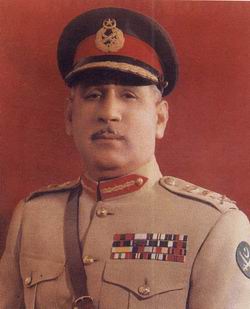
Despite his controversial legacy, Tikka Khan was a decorated military officer who received several honors, including the Hilal-i-Jurat and the Hilal-i-Imtiaz, two of Pakistan's highest military awards.
Muhammad Zia-ul-Haq
Muhammad Zia-ul-Haq was a Pakistani military officer and politician who served as the sixth President of Pakistan from 1978 until he died in a plane crash in 1988. He was born on August 12, 1924, in Jalandhar, British India, and died near Bahawalpur, Pakistan, on August 17, 1988.
Zia-ul-Haq came to power in a bloodless military coup in 1977, overthrowing the democratically elected government of Prime Minister Zulfikar Ali Bhutto. He declared martial law and ruled Pakistan as a military dictator for over a decade, during which he implemented conservative policies and Islamic laws. Political repression, human rights abuses, and the suppression of democratic institutions marked his regime.

Zia-ul-Haq also played a key role in the Soviet-Afghan War in the 1980s, supporting the Afghan Mujahideen fighters against the Soviet-backed Afghan government. His alliance with the United States and other Western countries during the conflict earned him significant military and economic aid.
Despite his controversial legacy, Zia-ul-Haq is credited with modernizing Pakistan's military and establishing a strong defense strategy. However, his regime is also criticized for its human rights abuses, curtailment of democratic freedoms, and promotion of religious extremism.
Mirza Aslam Beg NI(M), SBt
Mirza Aslam Beg NI(M), SBt is a retired Pakistani military officer who served as the Chief of Army Staff (COAS) from August 1988 to August 1991. He was born on August 2, 1931, in Azamgarh, India (now part of Uttar Pradesh) and raised in Pakistan.
Beg joined the Pakistani Army in 1952 and became the Chief of Army Staff. He played a key role in the Afghan War and was instrumental in creating the Taliban movement in Afghanistan, which he viewed as a strategic asset for Pakistan. Beg's tenure as COAS was marked by controversies, including his alleged involvement in the Mehran Bank scandal, for which the Pakistani government later indicted him.
After retiring from the military, Beg remained active in Pakistani politics and was associated with the conservative Islamist Jamaat-e-Islami party. He has also been a vocal critic of the United States and its policies in South Asia.
Beg was awarded several military honors during his career, including the Nishan-e-Imtiaz (Military) and the Sitara-e-Basalat.
Asif Nawaz Janjua NI(M), SBt
Asif Nawaz Janjua NI(M), SBt was a Pakistani military officer who served as the Chief of Army Staff (COAS) from August 1991 until his sudden death in January 1993. He was born on January 3, 1946, in Quetta, Pakistan.
Janjua joined the Pakistani Army in 1965 and became the Chief of Army Staff. During his tenure, he oversaw the military's role in the Kashmir conflict with India and was involved in the country's political affairs.
Janjua's sudden death in 1993 shocked the country, and his passing was mourned by the military and civilian populations alike. He was posthumously awarded the Hilal-e-Imtiaz, one of Pakistan's highest civilian awards, for his services to the country.
Janjua is remembered as a brave and dedicated military officer whom his colleagues and subordinates respected. His death was a significant loss for the Pakistani military and the country.
Abdul Waheed Kakar NI(M), SBt
Abdul Waheed Kakar NI(M), SBt was a Pakistani military officer who served as the Chief of Army Staff (COAS) from January 1993 to January 1996. He was born on March 20, 1937, in Quetta, Pakistan, and died on January 10, 2018, in Rawalpindi, Pakistan.
Kakar joined the Pakistani Army in 1955 and served in various command and staff positions before becoming the Chief of Army Staff. His tenure was marked by political instability and military interventions in Pakistan, including the dismissal of the government of Prime Minister Benazir Bhutto in 1996.
Kakar was known for his professionalism and dedication to the military. His colleagues and subordinates respected him for his leadership qualities and commitment to the defense of Pakistan. After retiring from the military, he remained active in public life and was a member of the Senate of Pakistan.
Kakar was awarded several military honors during his career, including the Nishan-e-Imtiaz (Military) and the Sitara-e-Basalat. He is remembered as a distinguished military officer who served his country honorably.
Jehangir Karamat NI(M)
Jehangir Karamat NI(M) is a retired Pakistani military officer who served as the Chief of Army Staff (COAS) from January 1996 to October 1998. He was born on February 20, 1941, in Lahore, Pakistan.

Karamat joined the Pakistani Army in 1961 and served in various command and staff positions before becoming the Chief of Army Staff. His tenure was marked by political instability, tensions with India, and economic challenges in Pakistan.
Karamat was known for his strategic thinking and focus on modernizing the Pakistani military. He advocated for greater civilian-military cooperation and pushed for economic reforms to improve the country's stability. However, his efforts to bring about change were met with resistance from some quarters, and he was eventually forced to resign in 1998.
After retiring from the military, Karamat remained active in public life and served as Pakistan's ambassador to the United States from 2004 to 2006. He also held several academic positions, including a professorship at the National Defense University in Islamabad.
Karamat was awarded several military honors during his career, including the Nishan-e-Imtiaz (Military) and the Hilal-e-Imtiaz. He is remembered as a distinguished military officer who served his country with honor and dedication.
Pervez Musharraf NI(M
Pervez Musharraf NI(M) is a retired Pakistani military officer who served as the Chief of Army Staff (COAS) from October 1998 to November 2007. He also served as the President of Pakistan from 2001 to 2008. He was born on August 11, 1943, in Delhi, India.
Musharraf joined the Pakistani Army in 1964 and served in various command and staff positions before becoming the Chief of Army Staff. He came to power in a bloodless coup in 1999, overthrowing Prime Minister Nawaz Sharif.
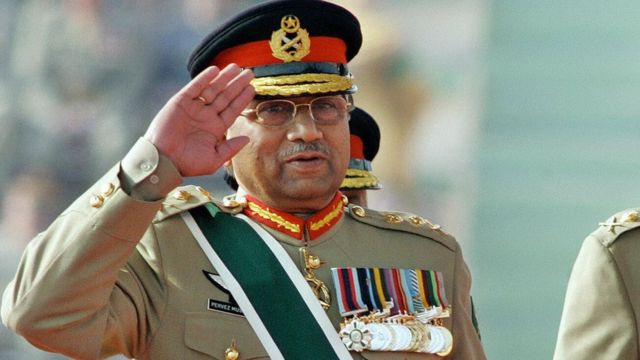
As President, Musharraf pursued a "enlightened moderation" policy to combat extremism in Pakistan and improve relations with India. He also played a key role in the United States "War on Terror" after 9/11 and supported the U.S.-led invasion of Afghanistan.
Musharraf's tenure as President was marked by controversy, including allegations of human rights abuses and media suppression. He was also criticized for handling the Lal Masjid operation in 2007, which resulted in the deaths of over 100 people.
After resigning as President in 2008, Musharraf went into self-imposed exile and faced several legal challenges in Pakistan. He returned to Pakistan in 2013 but was immediately arrested on treason charges. In 2019, he was sentenced to death in absentia for treason, but the Pakistani Supreme Court later overturned the verdict.
Musharraf was awarded several military honors during his career, including the Nishan-e-Imtiaz (Military) and the Hilal-e-Imtiaz. He remains a controversial figure in Pakistani politics and is viewed by some as a strong leader who made difficult decisions in challenging times. In contrast, others see him as a dictator who violated the country's democratic norms and human rights.
Ashfaq Pervez Kayani NI(M), HI(C)
Ashfaq Pervez Kayani NI(M), HI(C) is a retired Pakistani military officer who served as the Chief of Army Staff (COAS) from 2007 to 2013. He was born on April 20, 1952, in Jhelum, Pakistan.
Kayani joined the Pakistani Army in 1971 and served in various command and staff positions before becoming the Chief of Army Staff. His tenure was marked by continued tensions with India and a growing insurgency in Pakistan's tribal areas.

Kayani was known for his professionalism and focus on modernizing the Pakistani military. He advocated for greater civilian-military cooperation and was instrumental in forming the National Counter Terrorism Authority (NACTA) to combat terrorism in Pakistan.
Kayani also played a key role in the U.S.-led War in Afghanistan and worked to improve Pakistan's relationship with the United States, which had become strained under Musharraf's leadership.
After retiring from the military, Kayani remained active in public life and was a member of the National Defense University's board of governors. He is also involved in charitable and educational activities in Pakistan.
Kayani was awarded several military honors during his career, including the Nishan-e-Imtiaz (Military) and the Hilal-e-Imtiaz. He is remembered as a distinguished military officer who served his country with honor and dedication.
General Raheel Sharif NI(M), HI(M)
General Raheel Sharif NI(M), HI(M) is a retired Pakistani military officer who served as the Chief of Army Staff (COAS) from 2013 to 2016. He was born on June 16, 1956, in Quetta, Pakistan.
Sharif joined the Pakistani Army in 1976 and served in various command and staff positions before becoming the Chief of Army Staff. His tenure was marked by a renewed focus on counterterrorism and a crackdown on militancy in Pakistan's tribal areas.
Under Sharif's leadership, the Pakistani military launched a major operation, known as Zarb-e-Azb, to clear militant strongholds in the North Waziristan tribal region. The process successfully eliminated many militant groups and improved security in the area.
Sharif also played a key role in improving Pakistan's relationship with Afghanistan and promoting regional stability. He oversaw the formation of the Quadrilateral Coordination Group (QCG), a framework for peace talks with the Taliban, and worked to improve Pakistan's relationship with India.

After retiring from the military, Sharif became the head of a Saudi-led military alliance to counter terrorism and extremism in the region. He is also involved in charitable and educational activities in Pakistan.
Sharif was awarded several military honors during his career, including the Nishan-e-Imtiaz (Military) and the Hilal-e-Imtiaz. He is remembered as a distinguished military officer who served his country with honor and dedication.
Qamar Javed Bajwa
Qamar Javed Bajwa NI(M) is a Pakistani military officer who has been serving as the Chief of Army Staff (COAS) of the Pakistan Army since November 2016. He was born on November 11, 1960, in Karachi, Pakistan.
Bajwa joined the Pakistani Army in 1980 and served in various command and staff positions before becoming the Chief of Army Staff. His tenure has been marked by a continued focus on counterterrorism and a commitment to improving Pakistan's security and stability.
Under Bajwa's leadership, the Pakistani military has continued to play a key role in the fight against terrorism and militancy in the country. He has also worked to improve Pakistan's relationship with its neighbors, particularly India and Afghanistan, and has promoted regional cooperation and stability.
Bajwa has emphasized the need for greater civilian-military cooperation in Pakistan and has supported the country's democratic institutions. He has also focused on improving the Pakistani military's and their families welfare.
Bajwa has been awarded several military honors during his career, including the Nishan-e-Imtiaz (Military) and the Hilal-e-Imtiaz. He is considered a highly respected and professional military officer dedicated to serving his country and improving its security and stability.
Asim Munir NI(M), HI(M)
Asim Munir NI(M), HI(M) is a retired Pakistani military officer who served as the Director General of the Inter-Services Intelligence (ISI) from 2018 to 2019. He was born on April 3, 1962, in Punjab, Pakistan.
Munir joined the Pakistani Army in 1983 and served in various command and staff positions before being appointed Director General of the ISI. He was known for his professionalism and focus on intelligence gathering and analysis.
During his tenure as the Director General of the ISI, Munir played a key role in improving Pakistan's relationship with its neighbors, particularly Afghanistan and India. He also worked to enhance the intelligence capabilities of the ISI and improve its coordination with other intelligence agencies.

Munir retired from the Pakistani military in June 2019, after serving more than 35 years. He was awarded several military honors during his career, including the Nishan-e-Imtiaz (Military) and the Hilal-e-Imtiaz.
Munir is remembered as a distinguished military officer who served his country with honor and dedication.
